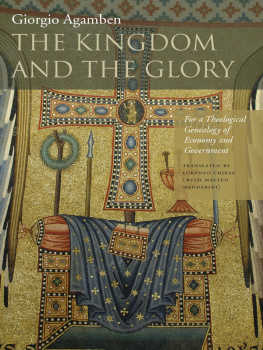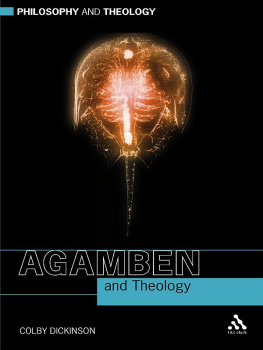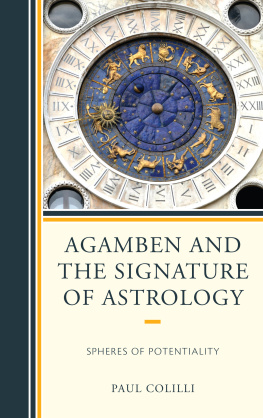Giorgio Agamben - Profanations
Here you can read online Giorgio Agamben - Profanations full text of the book (entire story) in english for free. Download pdf and epub, get meaning, cover and reviews about this ebook. year: 2020, publisher: Zone Books, genre: Religion. Description of the work, (preface) as well as reviews are available. Best literature library LitArk.com created for fans of good reading and offers a wide selection of genres:
Romance novel
Science fiction
Adventure
Detective
Science
History
Home and family
Prose
Art
Politics
Computer
Non-fiction
Religion
Business
Children
Humor
Choose a favorite category and find really read worthwhile books. Enjoy immersion in the world of imagination, feel the emotions of the characters or learn something new for yourself, make an fascinating discovery.

- Book:Profanations
- Author:
- Publisher:Zone Books
- Genre:
- Year:2020
- Rating:3 / 5
- Favourites:Add to favourites
- Your mark:
- 60
- 1
- 2
- 3
- 4
- 5
Profanations: summary, description and annotation
We offer to read an annotation, description, summary or preface (depends on what the author of the book "Profanations" wrote himself). If you haven't found the necessary information about the book — write in the comments, we will try to find it.
Profanations — read online for free the complete book (whole text) full work
Below is the text of the book, divided by pages. System saving the place of the last page read, allows you to conveniently read the book "Profanations" online for free, without having to search again every time where you left off. Put a bookmark, and you can go to the page where you finished reading at any time.
Font size:
Interval:
Bookmark:

Profanations
Profanations
Giorgio Agamben
Translated by Jeff Fort
ZONE BOOKSNEW YORK
2007
2007 Urzone, Inc.
ZONE BOOKS
633 Vanderbilt Street
Brooklyn, NY 11218
All rights reserved.
First ebook edition 2020
ISBN 978-1-942130-56-7
Version 1.0
No part of this book may be reproduced, stored in a retrieval system, or transmitted in any form or by any means, including electronic, mechanical, photocopying, microfilming, recording, or otherwise (except for that copying permitted by Sections 107 and 108 of the U.S. Copyright Law and except by reviewers for the public press), without written permission from the Publisher.
Orginally published as Profanazioni 2005 Nottetempo.
Distributed by Princeton University Press,
Princeton, New Jersey, and Woodstock, United Kingdom
Library of Congress Cataloging-in-Publication Data
Agamben, Giorgio, 1942
Profanations / Giorgio Agamben; translated by Jeff Fort.
p. cm.
Includes bibliographical references.
ISBN 978-1-890951-83-2
1. Aesthetics. 2. Art Philosophy I. Title.
BH39.A3213 2007
111.85 dc22
2007023901
- 7
- 9
- 19
- 23
- 29
- 37
- 53
- 55
- 61
- 73
- 93
- 95
I would like to thank Kevin Attell for contributing his translation, In Praise of Profanation, which he prepared at Agambens request for an oral presentation of this text in English in January 2005. I would also like to thank Tommaso Giartosio for his helpful suggestions.
Now my charms are all oerthrown
And what strength I haves mine own.
Prospero to the audience in The Tempest
In Latin, Genius was the name used for the god who becomes each mans guardian at the moment of birth. The etymology is transparent and remains visible linguistically in the very proximity appearing between genius and generation. That Genius is related to generation is evident in any case due to the fact that in Latin, the genial object par excellence was the bed, the lectus genialis, because it is in bed that the act of generation is accomplished. Birthdays are sacred to Genius, and for that reason we still use the adjective genetliaco (birthday) in Italian. Despite the odious, now-inevitable Anglo-Saxon refrain, the presents and parties with which we celebrate birthdays are a memory of the feast and sacrifices offered to Genius by Roman families on birthdays. Horace speaks of pure wine, of a two-month-old piglet, of an immolated lamb, meaning one that is sprinkled with sauce for the sacrifice. It seems, though, that originally there was only incense, wine, and delicious honey cake, because Genius, the god who presides over birth, did not like blood sacrifices.
He is called my Genius, because he generated me (Genius meus nominatur, quia me genuit). But that is not all. Genius was not only the personification of sexual energy. Certainly, every man had his Genius and every woman her Juno, both of which manifested the fertility that generates and perpetuates life. But as the term ingenium that is, the sum of physical and moral qualities innate in the one who is born indicates, Genius was, in a certain way, the divinization of the person, the principle that governed and expressed his entire existence. For this reason, it was not the pubis but the forehead that was associated with Genius; the gesture of bringing the hand to the forehead which we enact almost without realizing it in moments of confusion and disorientation, when we seem almost to have forgotten ourselves recalls the ritual gesture of the cult of Genius (unde venerantes deum tangimus frontem). And since this god is, in a sense, what is most intimate and most our own, he must be placated and his favor maintained in every aspect and at every moment of life.
A Latin phrase perfectly expresses the secret relationship each person must maintain with his own Genius: indulgere genio. One must consent to Genius and abandon oneself to him; one must grant him everything he asks for, for his exigencies are our exigencies, his happiness our happiness. Even if his our! requirements seem unreasonable and capricious, it is best to accept them without argument. If in order to write you need he needs! a certain light yellow paper, a certain special pen, a certain dim light shining from the left, it is useless to tell yourself that just any pen will do, that any paper and any light will suffice. If life is not worth living without that light blue linen shirt (for goodness sake, not the white one with the collar of an office worker!), if without those long cigarettes with black paper you just dont see any reason to go on, then theres no point in repeating to yourself that these are no more than little manias, that now is the time to be over and done with them. In Latin, Genium suum defraudare, to defraud ones own genius, means to make ones life miserable, to cheat oneself, in Latin. But the life that turns away from death and responds without hesitation to the impetus of the genius that engendered it is called genialis, genial.
But this most intimate and personal god is also that which is most impersonal in us; it is the personalization of what, in us, goes beyond and exceeds us. Genius is our life not insofar as it was originated by us, but rather insofar as we originate from it. If it seems to be identified with us, it is only in order to reveal itself immediately afterward as more than us, and to show us that we are more and less than ourselves. Comprehending the conception of man implicit in Genius means understanding that man is not only an ego and an individual consciousness, but rather that from birth to death he is accompanied by an impersonal, preindividual element. Man is thus a single being with two phases; he is a being that results from the complex dialectic between a part that has yet to be individuated and lived and another part that is marked by fate and individual experience. But the impersonal, nonindividual part is not a past we have left behind once and for all and that we may eventually recall in memory; it is still present in us, still with us, near to us and inseparable from us, for both good and ill. Genius youthful face and long, fluttering wings signify that he does not know time, that we feel him quivering as closely within us as he did when we were children, breathing and beating in our feverish temples like an immemorial present. That is why a birthday cannot be the commemoration of a past day but, like every true celebration, must be an abolition of time the epiphany and presence of Genius. This inescapable presence prevents us from enclosing ourselves within a substantial identity and shatters the egos pretension to be sufficient unto itself.
It has been said that spirituality is above all an awareness that the individuated being is not completely individuated but still contains a certain nonindividuated share of reality, which must be not only preserved but also respected and, in a way, even honored, as one honors ones debts. But Genius is not merely spirituality and is not just concerned with the things that we customarily regard as higher and more noble. Everything in us that is impersonal is genial. The force that pushes the blood through our veins or that plunges us into sleep, the unknown power in our body that gently regulates and distributes its warmth or that relaxes or contracts the fibers of our muscles that too is genial. It is Genius that we obscurely sense in the intimacy of our physiological life, in which what is most ones own is also strange and impersonal, and in which what is nearest somehow remains distant and escapes mastery. If we did not abandon ourselves to Genius, if we were only ego and consciousness, we would not even be able to urinate. Living with Genius means, in this sense, living in the intimacy of a strange being, remaining constantly in relation to a zone of nonconsciousness. But this zone of nonconsciousness is not repression; it does not shift or displace an experience from consciousness to the unconscious, where this experience would be sedimented as a troubling past, waiting to resurface in symptoms and neuroses. This intimacy with a zone of nonconsciousness is an everyday mystical practice, in which the ego, in a sort of special, joyous esoterism, looks on with a smile at its own undoing and, whether its a matter of digesting food or illuminating the mind, testifies incredulously to its own incessant dissolution and disappearance.
Font size:
Interval:
Bookmark:
Similar books «Profanations»
Look at similar books to Profanations. We have selected literature similar in name and meaning in the hope of providing readers with more options to find new, interesting, not yet read works.
Discussion, reviews of the book Profanations and just readers' own opinions. Leave your comments, write what you think about the work, its meaning or the main characters. Specify what exactly you liked and what you didn't like, and why you think so.










